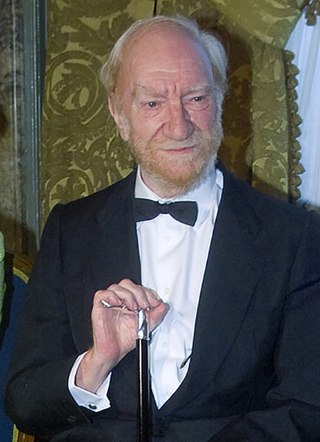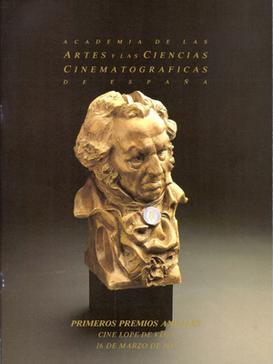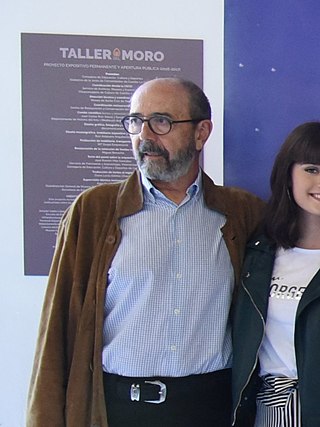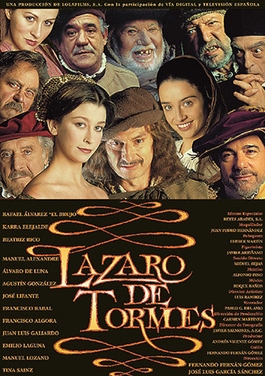
Fernando Fernández GómezOAXS, MMT better known as Fernando Fernán Gómez was a Spanish actor, screenwriter, film director, theater director, novelist, and playwright. Prolific and outstanding in all these fields, he was elected member of the Royal Spanish Academy in 1998. He was born in Lima, Peru while his mother, Spanish actress Carola Fernán-Gómez, was making a tour in Latin America. He would later use her surname for his stage name when he moved to Spain in 1924.

Francisco Rabal Valera, better known as Paco Rabal, was a Spanish actor, director, and screenwriter born in Águilas, a town in the south-western part of the province of Murcia, Spain. Throughout his career, Rabal appeared in around 200 films working with directors including Francesc Rovira-Beleta, Luis Buñuel, José Luis Sáenz de Heredia, Carlos Saura, Pedro Almodóvar, William Friedkin, Michelangelo Antonioni, Claude Chabrol, Luchino Visconti, and Gillo Pontecorvo. Paco Rabal was recognized both in his native Spain and internationally, winning the Award for Best Actor at the Cannes Film Festival for Los Santos Inocentes and a Goya Award for Best Actor for playing Francisco de Goya in Carlos Saura's Goya en Burdeos. One of Spain's most loved actors, Rabal also was known for his commitment to human rights and other social causes.

María Luisa Paredes Bartolomé, known professionally as Marisa Paredes, is a Spanish actress.

Belle Époque is a 1992 Spanish comedy-drama film directed by Fernando Trueba. Consisting of a fable-like story, primarily displaying a warm tone, and set in an idyllic countryside location during the transition to the Second Spanish Republic, the film features Jorge Sanz, Maribel Verdú, Ariadna Gil, Penélope Cruz, Miriam Díaz Aroca, Fernando Fernán Gómez, Gabino Diego and Chus Lampreave, among others.

Juan Diego Ruiz Moreno, professionally known as Juan Diego, was a Spanish actor who appeared on stage, in television and film productions since 1957. He starred in films such as The Holy Innocents, The 7th Day, Dragon Rapide, París-Tombuctú and You're the One.
The Goya Award for Best Picture is one of the Goya Awards, Spain's principal national film awards. The category was first awarded in 1986 to Fernando Fernán Gómez's drama film Voyage to Nowhere.
The Goya Award for Best Director is one of the Goya Awards, Spain's principal national film awards. The category has been presented ever since the first edition of the Goya Awards. Fernando Fernán Gómez was the first winner of this award for his film Voyage to Nowhere.

Jaime Chávarri is a Spanish film director and screenwriter, best known for his films El desencanto and Las bicicletas son para el verano.
The Goya Award for Best Original Screenplay is one of the Goya Awards, Spain's principal national film awards.

José María Sacristán Turiégano, better known as José Sacristán, is a Spanish film, theatre, and television actor.
Nacho Martínez was a Spanish actor.

The 1st Goya Awards were presented at the Teatro Lope de Vega, Madrid on 17 March 1987, and was presented by Fernando Rey.
The Goya Award for Best Cinematography is one of the Goya Awards, Spain's principal national film awards. The category has been presented ever since the first edition of the Goya Awards. Teodoro Escamilla was the first winner of the award for his work in Love, the Magician (1986).
The Goya Award for Best Adapted Screenplay is one of the Goya Awards, Spain's principal national film awards.
José Fernández Aguayo was a Spanish photography director. Throughout his career, he worked with some of the greatest Spanish film directors, such as Luis Buñuel and Fernando Fernán-Gómez.
The Gold Medal of Merit in the Fine Arts is awarded by the Ministry of Culture and Sport of Spain to individuals or institutions excelling in artistic or cultural creation or to those that have provided valuable services to promotion of art and culture or to conservation of artistic heritage.

Miguel Ángel Rellán García is a Spanish actor. He was the first actor to win a Goya Award for Best Supporting Actor for Tata mía at the 1987 edition. He made his feature film debut in El perro (1977). He became very popular to a television audience in Spain for his portrayal of history teacher Félix in Compañeros.
Mambru Went to War is a 1986 Spanish drama film directed by Fernando Fernán-Gómez, written by Pedro Beltrán, scored by Carmelo A. Bernaola and starring Agustín González, Emma Cohen, Fernando Fernán-Gómez and María Asquerino. It is set after Francisco Franco's death.
The 37th Goya Awards ceremony, presented by the Academy of Cinematographic Arts and Sciences of Spain, took place at the FIBES Conference and Exhibition Centre in Seville, Andalusia on 11 February 2023.

Lázaro de Tormes is a 2001 Spanish comedy film directed by Fernando Fernán Gómez and José Luis García Sánchez which stars Rafael Álvarez "El Brujo" as the title character.










